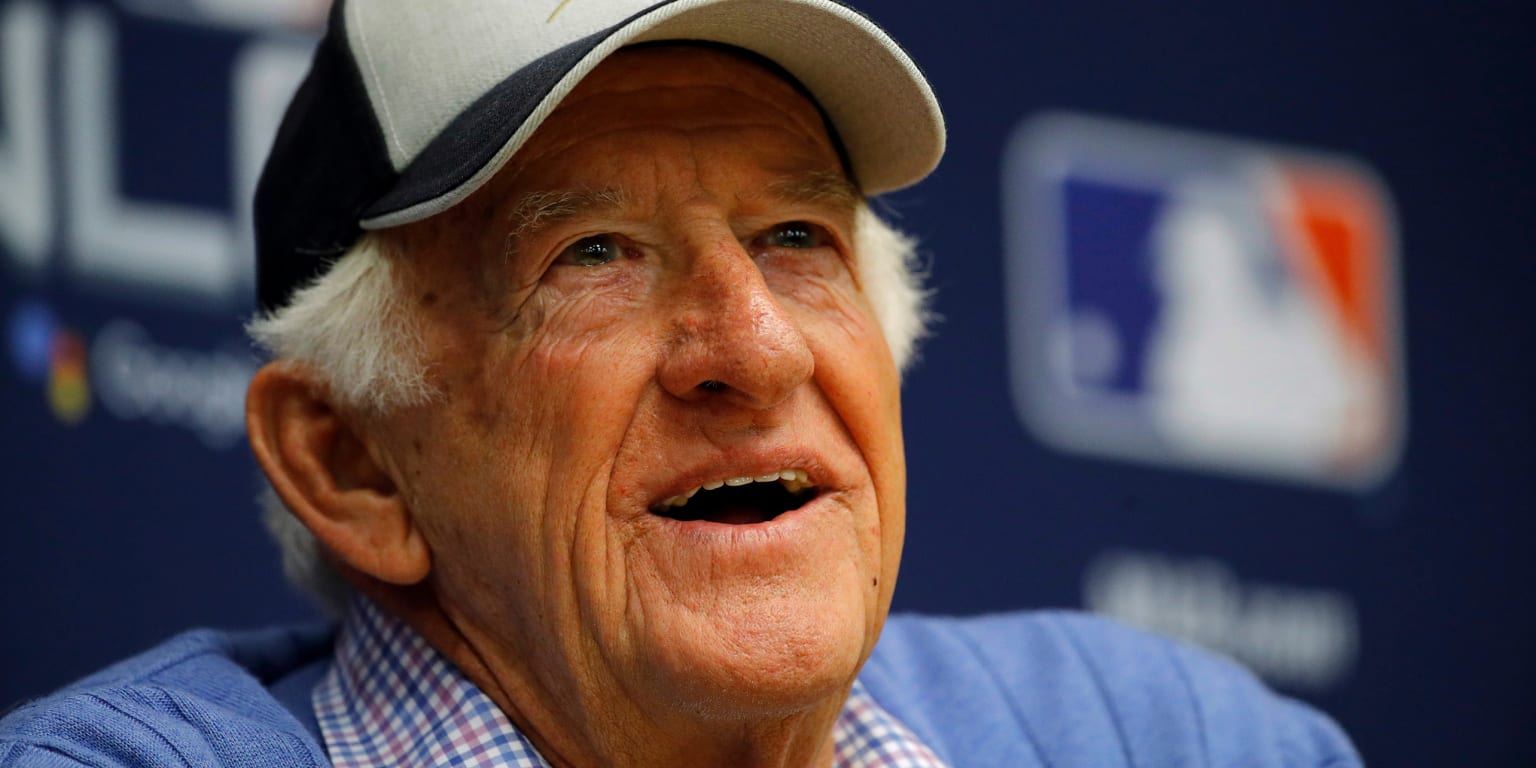A version of this story originally ran in January 2021. Bob Uecker passed away on Thursday at 90.
MILWAUKEE — Here are some of our favorite stories about legendary Brewers broadcaster Bob Uecker.

The time he aged two years on one birthday
No matter what other sources tell you, Robert George Uecker was born in Milwaukee on Jan. 26, 1934. Throughout his playing career, the back of Uecker’s baseball card said he was born in 1935. Uecker says he never paid attention, but when he got older and people began to more frequently ask his age, he noticed that most databases had it wrong. When he turned 80 in 2014, Uecker finally set the record straight — and lamented a missed opportunity.
“If I was going to cheat on my age, I would certainly make it more than one year,” Uecker said. “This just gets me into the Village at Manor Park sooner.”
For out-of-towners, that’s one of the Milwaukee area’s prominent retirement homes.
From St. Boniface to the big leagues

Uecker’s father, August, was a Swiss immigrant who worked as a tool and die maker and mechanic. His mother, Mary Schultz, was born in Michigan and had a brother, Bernard, who played professional baseball in the Tigers’ organization. August and Mary settled on Milwaukee’s near north side at 10th Street and Meinecke Avenue and had three children — two daughters and Bob, who grew up surrounded by baseball.
At St. Boniface grade school, Uecker was within walking distance of Borchert Field, home to the original iteration of the Milwaukee Brewers, a Minor League team that played from 1902-53. Fans today know about Uecker’s exploits as a light-hitting catcher for his hometown Milwaukee Braves before stints in St. Louis, Philadelphia and Atlanta, but he actually began his baseball life as a pitcher, as he told MLB.com in 2015.
“I was a pretty good pitcher, you know,” Uecker said. “I threw a no-hitter. I threw pretty hard, actually. I had a workout with the Braves. I was, like, 16 years old, and they invited me down there during the afternoon. The catcher was a guy named Bob Keely. The pitching coach was a guy named Johnny Cooney.

“I’m on the sidelines throwing down at County Stadium. And like I said, I was a pretty good pitcher and I’m down there humping pretty good. I threw upper 80s, low 90s maybe. I’d been playing sandlot baseball and we won a city championship a couple years in a row with Rohr Jewelers downtown. We were good. So, I’m humping for about 15 minutes. All of a sudden, Cooney says, ‘All right, now let me see your good fastball.’ I said, ‘I have been throwing my good fastball!’ And he says, ‘Well, then I recommend you get a job.’
“Years later, I ran into him when I was a catcher with the Braves and I asked if he remembered me. He looked at me and said no. That’s a true story. It was pretty much a destroyer.”
Hometown kid
Everyone has their favorite one-liner from Uecker. Here’s the setup for one of our favorites: Prior to the 1956 season, Uecker signed with his hometown Milwaukee Braves for $3,000.
“That bothered my dad at the time because he didn’t have that kind of dough,” Uecker said. “But he eventually scraped it up.”
Career achievements

In Milwaukee, Uecker was a teammate of Hank Aaron, Eddie Mathews and Warren Spahn. Then he went to the Cardinals to back up catcher Tim McCarver in 1964 and won a World Series ring. But the achievement Uecker mentions most came in his final Major League season, 1967, when he was traded by the Phillies to the Atlanta Braves and joined a roster that included knuckleballer Phil Niekro. That season, Uecker was charged with 27 passed balls, 25 coming with the Braves.
That’s an all-time record, as he proudly notes.
“There was a game, as a matter of fact, during that year when Phil Niekro’s brother and he were pitching against each other in Atlanta,” Uecker said in Cooperstown in 2003. “Their parents were sitting right behind home plate. I saw their folks that day more than they did the whole weekend.”
The Music Man
Before the Cardinals took on the Yankees in Game 2 of the 1964 Fall Classic at Busch Stadium, Uecker decided he would loosen things up a bit. He strapped on a tuba during batting practice, walked to the outfield and proceeded to shag fly balls with it.
“They had some Dixieland bands on the field that were playing before the game,” Uecker recalled in The Chicago Tribune. “And while one of them was taking a break, I grabbed one of the tubas and put it on and went out in the outfield and started shagging fly balls with it. I didn’t catch them all. Some made dents in the tuba, but I caught a couple.”